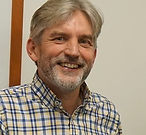TOWARDS MULTICULTURAL CHURCHES
- Ian Duncum

- Mar 19, 2018
- 4 min read
Updated: Oct 15, 2018

This week debate about a ‘Big Australia’ on ABC’s Q&A, though cloaked in questions about infrastructure support and environmental sustainability, included questions about levels of sustainable migration. The announcement by Peter Dutton in the last few days of immigration priority for white South African farmers has also provoked considerable reaction.
Revitalisation entails moving from a theoretical engagement with such debates, to grounding responsive action in the context of our own lives, our local church, and our local community. There are two important responses Christian leaders, pastors and Christians must make as we construct such action.
One response is theological, for how we think about ourselves, others and God is the starting place for such action. We worship “…a migrant God who wanders through the wilderness with his people …[and] who experiences exile, social marginalisation, and a sense of rootlessness in and through the incarnate life of Jesus.” [1] Jesus reaffirms God’s love for all people in his Great Commission (Mat 28:19-20) and this inclusive mission is tangibly expressed at Pentecost (Acts 2.1-13). But since our experience does not yet match this theological vision, we need to reflect more fully on these biblical motifs:
"For as it is today, segregated by race and class distinctions, the local church remains a far cry from that which Christ envisioned (John 17:20-23), Luke described (Acts 11:19-26; 13:1), and Paul prescribed in the book of Ephesians. Only by returning to the principles and practices of first-century churches (like those at Antioch and Ephesus, for example) can local churches in the twenty-first century hope to express a credible witness of God's love for all people. Yes, it was in such churches that men and women of diverse ethnic and economic background first learned to walk, work, and worship God together as one so that the world would know God's love and believe." [2]
The second response is practical (and I did not want to rush to the practical without at least some reflection on the why, and neither do I want to reduce grappling with multicultural issues to a pragmatic church growth tool). I have had the privilege of transitioning a church to become an international church, comprising sixteen different nationalities, through embracing and celebrating cultural diversity and connecting intentionally with a diverse local community. In this journey I have made many cultural gaffes, but it has enriched my own life in countless ways. As a church consultant, it is often an area I discuss with a church’s leadership team, especially where that church has become culturally isolated from its local community. Therefore these questions are key for every church and attender:
· How much does your church reflect your local community?
· How closely does the education, income, cultural background, and age of attenders in your church match that of those in your local community?
· What specific steps are you personally, and your church as a whole, taking to address lack of matching in these areas?
Naturally, practical responses should seek to be based in relationship and dialogue, lead to mutuality, and will vary from church to church and local community to local community. Some ways that churches have sought to respond practically are:
· Belonging and friendships, pastoral support
· Settlement assistance and advocacy
· Finding a voice and communicating in an Australian cultural context
· ESL courses
· International Nights
· Relationships with CALD (culturally and linguistically diverse) background churches (e.g. church services, small groups)
Church revitalisation is not merely about tinkering with a church’s internal workings (though it may include that), but also increasing its effectiveness to live out and share the gospel in its surrounding community. My initial research indicates that multicultural churches are more vital across a range of church health measures than monocultural Anglo churches. [3] This indicates that gifts of deeper spirituality and greater church health await churches and individuals who risk embracing greater cultural diversity, along with the transformation of communities and cities.
Other Resources
Duncum, I., Pepper, M., Hancock, N. & Powell, R. (2014) A comparison of the vitality of monocultural and multicultural churches, Occasional Paper 24. Sydney: NCLS Research. http://www.ncls.org.au/default.aspx?sitemapid=7230
Duncum, I., Hancock, N., Pepper, M. & Powell, R. (2014) Church involvement in migrant ministry, NCLS Research Fact Sheet 14008. Adelaide: Mirrabooka Press. http://www.ncls.org.au/default.aspx?sitemapid=7195
Duncum, I., Hancock, N & Powell, R. (2014) Local Church Engagement with Non-English Speaking Churches: NCLS Research Fact Sheet 14009. Adelaide: Mirrabooka Press. http://www.ncls.org.au/default.aspx?sitemapid=7196
NCLS Planning a Multicultural Ministry Tip Sheet
chrome-extension://oemmndcbldboiebfnladdacbdfmadadm/http://www.ncls.org.au/download/doc5380/NCLS%20Tip%20Sheet%20-%20Multicultural.pdf
Powell, R., Pepper, M., Hancock, N. (2014) Church attenders’ views of immigrants, NCLS Research Fact Sheet 14016. Adelaide: Mirrabooka Press. http://www.ncls.org.au/default.aspx?sitemapid=7212
References
[1] Jackson, D.R. (2016) ‘Australian Baptist Churches and the marginalisation of ethnicity.’ in Cronshaw, D. and Jackson, D.R., eds., Congregational Innovation, Cultural Diversity, and Australian Baptist Churches (Macquarie Park, NSW: Morling Press), 11.
[2] DeYmaz, Mark (2011) Should Pastors Accept or Reject the Homogenous Unit Principle? [Electronic book] (Little Rock, Arkansas: Mosaix Global Network), 9.
[3] Duncum, I., Pepper, M., Hancock, N. & Powell, R. (2014) A comparison of the vitality of monocultural and multicultural churches, Occasional Paper 24. Sydney: NCLS Research.
Dr Ian Duncum has led revitalisation as a pastor, Intentional Interim Pastor and church consultant. He has held denominational leadership roles, including training/supervising consultants, currently consults with churches and NFPs, and is a mentor, trainer, and writer. He can be contacted at https://www.ianduncum.com.au/
© 2018 All rights reserved. Copying and republishing this article on other Web sites, or in any other place, without written permission is prohibited. Photo is courtesy of Wix.









Comments